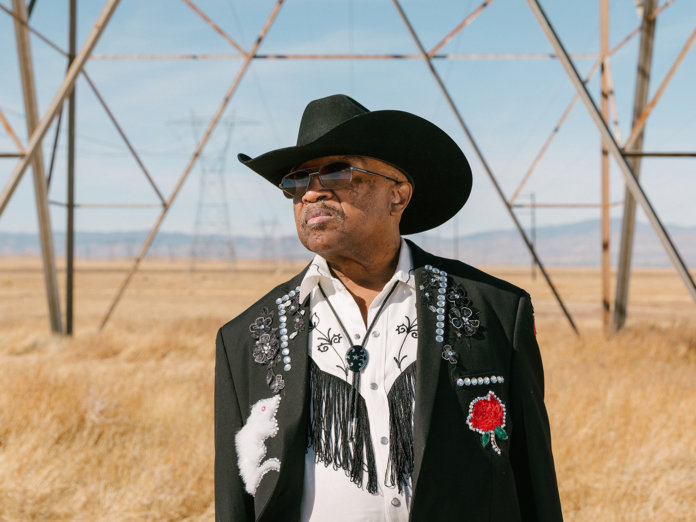In 1970, a songwriter from Virginia called Jerry Williams, along with his friend Gary US Bonds, wrote a heart-wrenching number called “Don’t Take Her (She’s All I Got)”. It was initially recorded in January 1971 by the Southern soul singer Freddie North, whose punchy, horn-assisted version (produced by Williams) made the Billboard Top 40 and the R&B Top 10. A few months later, the outlaw country singer Johnny Paycheck picked up the song, added some Nashville vocal harmonies and a touch of bottleneck guitar, and took it to the top of the country and western charts. Before long it had been covered by everyone from Loretta Lynn to Conway Twitty, from Tanya Tucker to George Jones, and transformed into a country standard.
Jerry Williams went on to reinvent himself as Swamp Dogg, a charismatic, pint-sized 5’5” soul and funk howler, developing a cult reputation with much-sampled albums like Total Destruction To Your Mind and Cuffed, Collared And Tagged. But he always maintained a love and respect for country music. He’d already written “Just For You”, recorded by Waylon Jennings in 1966, and in 1981 he recorded his own country album for Mercury Records, which went unreleased for more than 20 years. “I had this idea of an outrageous black country singer, with a cape and shit,” he said. “Like Little Richard, but pure country. But I think the music industry decided that there was only room for one black country star, and they already had Charlie Pride.”
Now, 50 years after he wrote “She’s All I Got”, a 77-year-old Swamp Dogg is revisiting it as the centrepiece of his first proper country album. It’s a deliciously slow reading of the song, pitched perfectly between Southern soul and country, between white and black – a mix of choral Nashville harmonies, clipped wah-wah guitar and pedal steel guitar.
As on his 2018 album Love, Loss And Auto-Tune, Swamp Dogg is assisted by a younger generation of musicians – Ryan Olson from the Minneapolis synth-pop band Poliça serves as producer, while Justin Vernon – a member of Ryan Olson’s Midwest supergroup Gayngs as well as a serial collaborator with everyone from Kanye West to Bruce Hornsby – adds plenty of woozy guitar flourishes, and the core band features members of Poliça and Gayngs along with the gospel pianist Derrick Lee. Crucially, there are no drums – all the rhythm tracks are provided by a chugging Sly Stone/Shuggie Otis-style Maestro Rhythm Machine drumbox. But, where that new generation of musicians were consciously dragging Swamp Dogg into android-voiced 21st-century R&B on the last album, here they serve as Dan Auerbach/Rick Rubin-style authenticity merchants.
As Ray Charles observed in the early 1960s, country songs – with that schlocky, world-weary narrative of heartbreak and rejection – aren’t so dissimilar to a certain strain of confessional soul ballad, and Swamp Dogg is good at mining that intersection. Sometimes he draws heavily upon Southern rock: “Family Pain”, a 12-bar blues about a family turning to drugs to cope with austerity, features some twangy Duane Allman-style guitar from Jim Oblon, and Appalachian swing fiddle from Sam Amidon. Other times he dips into that fusion that you find on so many “country got soul” compilations, using touches of wah-wah guitars, as on the horn-heavy country funk of “Good, Better, Best”. Like so much of the album, it’s a track that flips the embittered, “my-woman-wronged-me” misogyny that’s common to so much country and soul music. “Ain’t no such thing as a bad woman,” croons Dogg. “All of them sweet as a Georgia peach/Even the worst woman is better than the best man.”
Along with a few star backing vocalists – Justin Vernon, Jenny Lewis, Channy Leaneagh from Poliça – there are a couple of duets with John Prine, a sardonic country star of a similar vintage and attitude to Dogg. “Memories” is a jaunty country shuffle subtly spiked with wobbly electronic effects, while “Please Let Me Go Round Again” is heartbroken ballad laced with a piano/organ combo that comes straight out of a Baptist church.
But the two standout tracks suggest that Swamp Dogg’s take on C&W doesn’t need any gimmicks. The heartbroken ballad “I’d Rather Be Your Used To Be” starts as a virtual retread of “Cold Cold Heart” before Swamp Dogg ramps up the Southern soul stylings, like Hank Williams slowly mutating into Otis Redding. Best of all is “Billy”, one of those almost parodically tragic country ballads, sung from the POV of a widower visiting his dead wife’s grave. It should, by rights, be ridiculous, but the lyrics are presented with such conviction that it becomes quietly devastating. Rather like Swamp Dogg himself.


